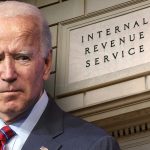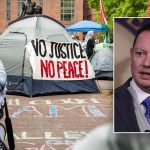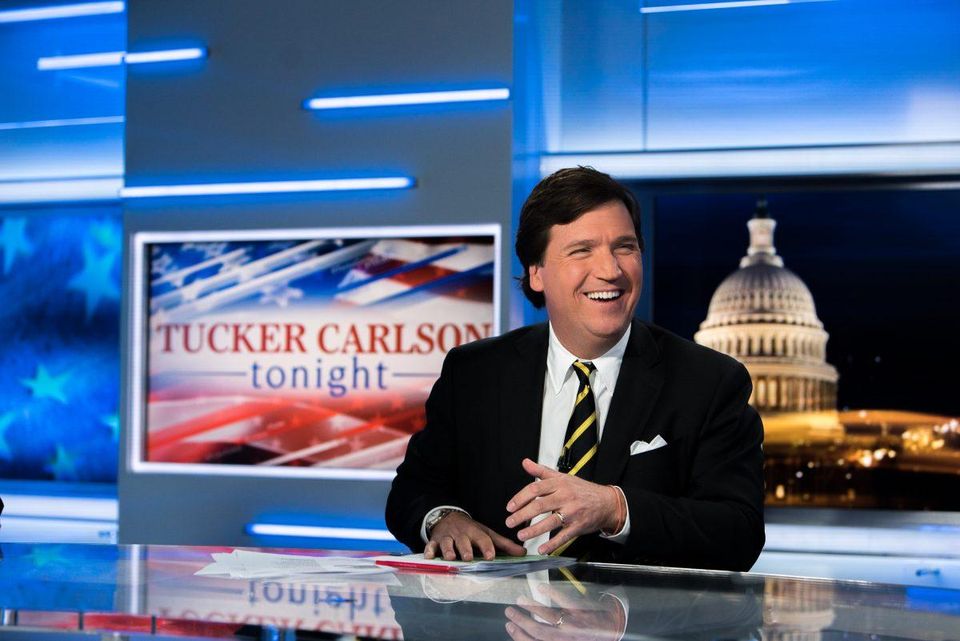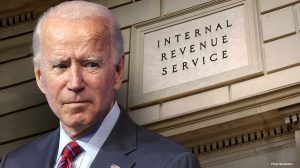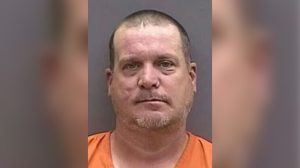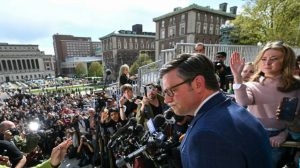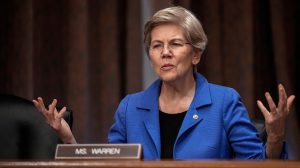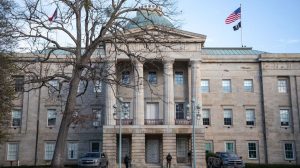Last Wednesday, the conservative talk show host Tucker Carlson started a fire on the right after airing a prolonged monologue on his show that was, in essence, an indictment of American capitalism.
America’s “ruling class,” Carlson says, are the “mercenaries” behind the failures of the middle class — including sinking marriage rates — and “the ugliest parts of our financial system.” He went on: “Any economic system that weakens and destroys families is not worth having. A system like that is the enemy of a healthy society.”
He concluded with a demand for “a fair country. A decent country. A cohesive country. A country whose leaders don’t accelerate the forces of change purely for their own profit and amusement.”
The monologue was stunning in itself, an incredible moment in which a Fox News host stated that for generations, “Republicans have considered it their duty to make the world safe for banking, while simultaneously prosecuting ever more foreign wars.” More broadly, though, Carlson’s position and the ensuing controversy reveals an ongoing and nearly unsolvable tension in conservative politics about the meaning of populism, a political ideology that Trump campaigned on but Carlson argues he may not truly understand.
Moreover, in Carlson’s words: “At some point, Donald Trump will be gone. The rest of us will be gone too. The country will remain. What kind of country will be it be then?”
The monologue and its sweeping anti-elitism drove a wedge between conservative writers. The American Conservative’s Rod Dreher wrote of Carlson’s monologue, “A man or woman who can talk like that with conviction could become president. Voting for a conservative candidate like that would be the first affirmative vote I’ve ever cast for president.” Other conservative commentators scoffed. Ben Shapiro wrote in National Review that Carlson’s monologue sounded far more like Sens. Bernie Sanders or Elizabeth Warren than, say, Ronald Reagan.
I spoke with Carlson by phone this week to discuss his monologue and its economic — and cultural — meaning. He agreed that his monologue was reminiscent of Warren, referencing her 2003 book The Two-Income Trap: Why Middle-Class Parents Are Growing Broke. “There were parts of the book that I disagree with, of course,” he told me. “But there are parts of it that are really important and true. And nobody wanted to have that conversation.”
Carlson wanted to be clear: He’s just asking questions. “I’m not an economic adviser or a politician. I’m not a think tank fellow. I’m just a talk show host,” he said, telling me that all he wants is to ask “the basic questions you would ask about any policy.” But he wants to ask those questions about what he calls the “religious faith” of market capitalism, one he believes elites — “mercenaries who feel no long-term obligation to the people they rule” — have put ahead of “normal people.”
But whether or not he likes it, Carlson is an important voice in conservative politics. His show is among the most-watched television programs in America. And his raising questions about market capitalism and the free market matters.
“What does [free market capitalism] get us?” he said in our call. “What kind of country do you want to live in? If you put these policies into effect, what will you have in 10 years?”
Populism on the right is gaining, again
Carlson is hardly the first right-leaning figure to make a pitch for populism, even tangentially, in the third year of Donald Trump, whose populist-lite presidential candidacy and presidency Carlson told me he views as “the smoke alarm … telling you the building is on fire, and unless you figure out how to put the flames out, it will consume it.”
Populism is a rhetorical approach that separates “the people” from elites. In the words of Cas Mudde, a professor at the University of Georgia, it divides the country into “two homogenous and antagonistic groups: the pure people on the one end and the corrupt elite on the other.” Populist rhetoric has a long history in American politics, serving as the focal point of numerous presidential campaigns and powering William Jennings Bryan to the Democratic nomination for president in 1896. Trump borrowed some of that approach for his 2016 campaign but in office has governed as a fairly orthodox economic conservative, thus demonstrating the demand for populism on the right without really providing the supply and creating conditions for further ferment.
When right-leaning pundit Ann Coulter spoke with Breitbart Radio about Trump’s Tuesday evening Oval Office address to the nation regarding border wall funding, she said she wanted to hear him say something like, “You know, you say a lot of wild things on the campaign trail. I’m speaking to big rallies. But I want to talk to America about a serious problem that is affecting the least among us, the working-class blue-collar workers”:
Coulter urged Trump to bring up overdose deaths from heroin in order to speak to the “working class” and to blame the fact that working-class wages have stalled, if not fallen, in the last 20 years on immigration. She encouraged Trump to declare, “This is a national emergency for the people who don’t have lobbyists in Washington.”
Ocasio-Cortez wants a 70-80% income tax on the rich. I agree! Start with the Koch Bros. — and also make it WEALTH tax.
— Ann Coulter (@AnnCoulter) January 4, 2019
These sentiments have even pitted popular Fox News hosts against each other.
Sean Hannity warned his audience that New York Rep. Alexandria Ocasio-Cortez’s economic policies would mean that “the rich people won’t be buying boats that they like recreationally, they’re not going to be taking expensive vacations anymore.” But Carlson agreed when I said his monologue was somewhat reminiscent of Ocasio-Cortez’s past comments on the economy, and how even a strong economy was still leaving working-class Americans behind.
“I’m just saying as a matter of fact,” he told me, “a country where a shrinking percentage of the population is taking home an ever-expanding proportion of the money is not a recipe for a stable society. It’s not.”
Carlson told me he wanted to be clear: He is not a populist. But he believes some version of populism is necessary to prevent a full-scale political revolt or the onset of socialism. Using Theodore Roosevelt as an example of a president who recognized that labor needs economic power, he told me, “Unless you want something really extreme to happen, you need to take this seriously and figure out how to protect average people from these remarkably powerful forces that have been unleashed.”
“I think populism is potentially really disruptive. What I’m saying is that populism is a symptom of something being wrong,” he told me. “Again, populism is a smoke alarm; do not ignore it.”
But Carlson’s brand of populism, and the populist sentiments sweeping the American right, aren’t just focused on the current state of income inequality in America. Carlson tackled a bigger idea: that market capitalism and the “elites” whom he argues are its major drivers aren’t working. The free market isn’t working for families, or individuals, or kids. In his monologue, Carlson railed against libertarian economics and even payday loans, saying, “If you care about America, you ought to oppose the exploitation of Americans, whether it’s happening in the inner city or on Wall Street” — sounding very much like Sanders or Warren on the left.
Carlson’s argument that “market capitalism is not a religion” is of course old hat on the left, but it’s also been bubbling on the right for years now. When National Review writer Kevin Williamson wrote a 2016 op-ed about how rural whites “failed themselves,” he faced a massive backlash in the Trumpier quarters of the right. And these sentiments are becoming increasingly potent at a time when Americans can see both a booming stock market and perhaps their own family members struggling to get by.
Missing from nearly all discussions of “why aren’t millennials having babies” is the fact that the thick, local, extended family—which *drastically* reduces the financial and emotional cost of having children—has almost completely collapsed in the West, particularly among whites.
— Jeremy McLellan (@JeremyMcLellan) January 8, 2019
At the Federalist, writer Kirk Jing wrote of Carlson’s monologue, and a response to it by National Review columnist David French:
Our society is less French’s America, the idea, and more Frantz Fanon’s “Wretched of the Earth” (involving a very different French). The lowest are stripped of even social dignity and deemed unworthy of life. In Real America, wages are stagnant, life expectancy is crashing, people are fleeing the workforce, families are crumbling, and trust in the institutions on top are at all-time lows. To French, holding any leaders of those institutions responsible for their errors is “victimhood populism” … The Right must do better if it seeks to govern a real America that exists outside of its fantasies.
J.D. Vance, author of Hillbilly Elegy, wrote that the economy’s victories — and praise for those wins from conservatives — were largely meaningless to white working-class Americans living in Ohio and Kentucky: “Yes, they live in a country with a higher GDP than a generation ago, and they’re undoubtedly able to buy cheaper consumer goods, but to paraphrase Reagan: Are they better off than they were 20 years ago? Many would say, unequivocally, ‘no.’”
Carlson’s populism holds, in his view, bipartisan possibilities. In a follow-up email, I asked him why his monologue was aimed at Republicans when many Democrats had long espoused the same criticisms of free market economics. “Fair question,” he responded. “I hope it’s not just Republicans. But any response to the country’s systemic problems will have to give priority to the concerns of American citizens over the concerns of everyone else, just as you’d protect your own kids before the neighbor’s kids.”
Who is “they”?
And that’s the point where Carlson and a host of others on the right who have begun to challenge the conservative movement’s orthodoxy on free markets — people ranging from occasionally mendacious bomb-throwers like Coulter to writers like Michael Brendan Dougherty — separate themselves from many of those making those exact same arguments on the left.
When Carlson talks about the “normal people” he wants to save from nefarious elites, he is talking, usually, about a specific group of “normal people” — white working-class Americans who are the “real” victims of capitalism, or marijuana legalization, or immigration policies.
In this telling, white working-class Americans who once relied on a manufacturing economy that doesn’t look the way it did in 1955 are the unwilling pawns of elites. It’s not their fault that, in Carlson’s view, marriage is inaccessible to them, or that marijuana legalization means more teens are smoking weed (this probably isn’t true). Someone, or something, did this to them. In Carlson’s view, it’s the responsibility of politicians: Our economic situation, and the plight of the white working class, is “the product of a series of conscious decisions that the Congress made.”
The criticism of Carlson’s monologue has largely focused on how he deviates from the free market capitalism that conservatives believe is the solution to poverty, not the creator of poverty. To orthodox conservatives, poverty is the result of poor decision making or a lack of virtue that can’t be solved by government programs or an anti-elite political platform — and they say Carlson’s argument that elites are in some way responsible for dwindling marriage rates doesn’t make sense.
But in French’s response to Carlson, he goes deeper, writing that to embrace Carlson’s brand of populism is to support “victimhood populism,” one that makes white working-class Americans into the victims of an undefined “they”:
Carlson is advancing a form of victim-politics populism that takes a series of tectonic cultural changes — civil rights, women’s rights, a technological revolution as significant as the industrial revolution, the mass-scale loss of religious faith, the sexual revolution, etc. — and turns the negative or challenging aspects of those changes into an angry tale of what they are doing to you.
And that was my biggest question about Carlson’s monologue, and the flurry of responses to it, and support for it: When other groups (say, black Americans) have pointed to systemic inequities within the economic system that have resulted in poverty and family dysfunction, the response from many on the right has been, shall we say, less than enthusiastic.
Really, it comes down to when black people have problems, it's personal responsibility, but when white people have the same problems, the system is messed up. Funny how that works!!
— Adam Serwer🍝 (@AdamSerwer) January 9, 2019
Yet white working-class poverty receives, from Carlson and others, far more sympathy. And conservatives are far more likely to identify with a criticism of “elites” when they believe those elites are responsible for the expansion of trans rights or creeping secularism than the wealthy and powerful people who are investing in private prisons or an expansion of the militarization of police. Carlson’s network, Fox News, and Carlson himself have frequently blasted leftist critics of market capitalism and efforts to fight inequality.
I asked Carlson about this, as his show is frequently centered on the turmoils caused by “demographic change.” He said that for decades, “conservatives just wrote [black economic struggles] off as a culture of poverty,” a line he includes in his monologue.
He added that regarding black poverty, “it’s pretty easy when you’ve got 12 percent of the population going through something to feel like, ‘Well, there must be … there’s something wrong with that culture.’ Which is actually a tricky thing to say because it’s in part true, but what you’re missing, what I missed, what I think a lot of people missed, was that the economic system you’re living under affects your culture.”
Carlson said that growing up in Washington, DC, and spending time in rural Maine, he didn’t realize until recently that the same poverty and decay he observed in the Washington of the 1980s was also taking place in rural (and majority-white) Maine. “I was thinking, ‘Wait a second … maybe when the jobs go away the culture changes,’” he told me, “And the reason I didn’t think of it before was because I was so blinded by this libertarian economic propaganda that I couldn’t get past my own assumptions about economics.” (For the record, libertarians have critiqued Carlson’s monologue as well.)
Carlson told me that beyond changing our tax code, he has no major policies in mind. “I‘m not even making the case for an economic system in particular,” he told me. “All I’m saying is don’t act like the way things are is somehow ordained by God or a function or raw nature.”
And clearly, our market economy isn’t driven by God or nature, as the stock market soars and unemployment dips and yet even those on the right are noticing lengthy periods of wage stagnation and dying little towns across the country. But what to do about those dying little towns, and which dying towns we care about and which we don’t, and, most importantly, whose fault it is that those towns are dying in the first place — those are all questions Carlson leaves to the viewer to answer.
Story cited here.
Scroll down to leave a comment:

